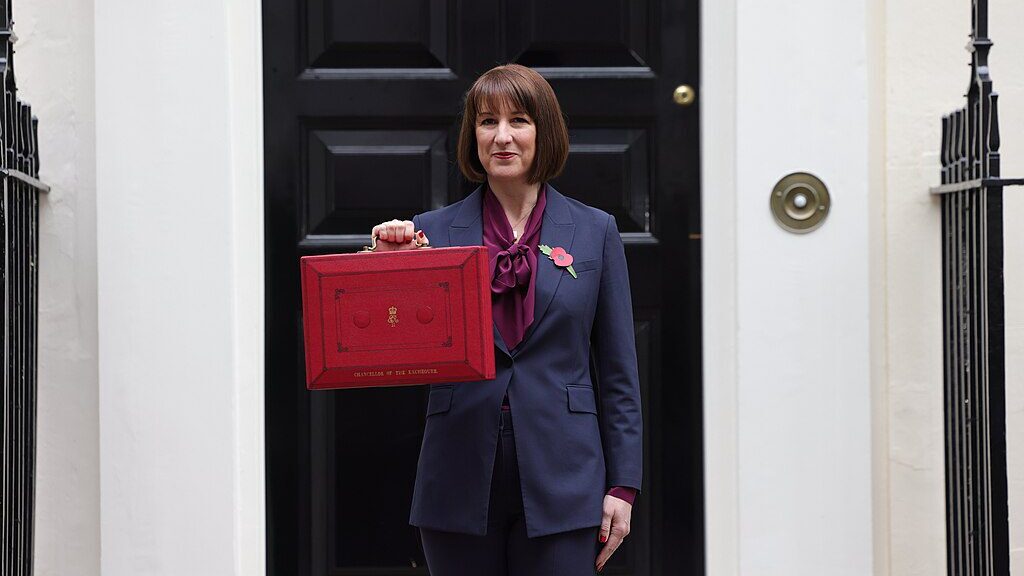
Chancellor Rachel Reeves delivers the Autumn Budget 2024.
Photo: Kirsty O’Connor / Treasury, OGL 3, via Wikimedia Commons
You would have struggled yesterday, as the UK’s newly installed Labour government unveiled its first budget in 14 years, to read a mainstream news article or listen to a radio broadcast that failed to celebrate this being the first ever to be delivered by a woman. Not that this has softened the heavy blow of what one analyst described as “the worst budget I have ever heard a British chancellor deliver, by an enormous margin.”
Chancellor Rachel “Robbing” Reeves, as Nigel Farage’s Reform UK now dubs her, may have offered some breadcrumbs to businesses and citizens, but these were overshadowed by a massive tax raid and the stunting of the very growth that Labour has promised over and over again to pursue.
Taxes have been raised by £40 billion (€47.81bn), including a £25 billion (€29.88bn) increase in employers’ contributions to national insurance (NIC), one of the UK’s two main sources of taxation on income. Experts on these matters say this hike will be paid for by working people—the very people Labour promised over and over again not to tax even more (noticing a trend?).
Lying on this scale to the British public should be illegal.
— Alex Armstrong (@alexharmstrong) October 31, 2024
It’s absolutely criminal. pic.twitter.com/n2tVa5SlzD
In fact, Reeves has herself accepted this morning, on the day after her budget, that this rise
“is likely to mean that wage increases might be slightly less than they otherwise would have been”—effectively accepting that it is a tax on working people.
Reform’s Richard Tice went further, describing the budget as an “assault on working people, an assault on growth and an assault on hard work.”
Thanks to this budget, we are all getting poorer: Per person, per family, per small business, per community.
Reeves backtracked on yet another pre-election promise in her budget by going after the inheritance tax relief for farms, a measure the National Farmers’ Union attacked as “snatch[ing] away the next generation’s ability to carry on producing British food.”
It is no surprise, then, that within just hours of her speech, incensed farmers were drawing up plans to take their tractors to Whitehall, the home of the British government, and to target Labour’s next party conference. One protest organiser told political blog Guido Fawkes—which pointed to the possibility of “gilet-jaune-style” action—that “we haven’t seen this kind of anger in among farmers since the [2002] Countryside March,” dubbed the biggest rural protest in UK history.
The chancellor’s enormous spending boost of almost £70 billion (€83.6bn) a year over the next five years will also push up inflation and mortgage rates, according to expert forecasts.
And while Prime Minister Keir Starmer pledged just last month that there would be no additional funding for the National Health Service without reform, Reeves yesterday signed off on an extra £22.6 billion (€26.99bn) for day-to-day spending in 2025/26, as well as £3.1 billion (€3.7) for investment, with a reform plan not yet in sight.
But while taxes and spending may be about to go up, the initial reception to Reeves’ budget would appear to suggest that the popularity rating of the Labour government will continue to go down.
